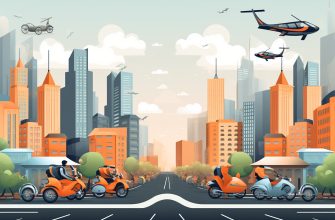Sustainable Solution for Improved Waste Management
Waste management is an ongoing concern for urban areas. As populations grow, so too does the amount of waste produced. This waste can negatively impact the environment, public health, and the economy.
However, a new solution has emerged in recent years: urban public waste reduction and composting education programs. In this article, we will explore the benefits of these programs, their challenges, and their potential for improving waste management and sustainability in urban areas.
The Benefits of Urban Public Waste Reduction and Composting Education Programs
Urban public waste reduction and composting education programs have many benefits, including:
- Reduced waste: By educating the public on waste reduction and composting, these programs can help to reduce the amount of waste produced by households and businesses.
- Improved sustainability: Composting can help reduce greenhouse gas emissions and create a more sustainable environment.
- Improved soil health: Compost can be used as a natural fertilizer, improving soil health and reducing the need for chemical fertilizers.
- Cost savings: By reducing the waste produced and diverting waste from landfills, these programs can save municipalities money on waste management costs.
Challenges of Urban Public Waste Reduction and Composting Education Programs
Despite the many benefits of urban public waste reduction and composting education programs, there are also challenges that must be addressed, including:
- Limited participation: Getting people to participate in these programs can be challenging, as it requires a change in behavior and commitment to composting.
- Limited resources: Municipalities may not have the resources to provide the necessary infrastructure and education to support these programs.
- Lack of education: Many people are not familiar with the benefits of composting and how to properly compost, which can be a barrier to participation.
Potential Solutions to the Challenges
To address these challenges, there are several potential solutions:
- Community education: By educating the community about the benefits of composting and providing them with the necessary tools and resources, more people may be willing to participate in these programs.
- Public-private partnerships: Municipalities can partner with private businesses to provide funding and resources for these programs.
- Incentives: Offering incentives for composting, such as reduced waste management fees, can encourage more people to participate.
Examples of Successful Urban Public Waste Reduction and Composting Education Programs
Several cities have implemented successful urban public waste reduction and composting education programs, including:
- San Francisco: San Francisco has a mandatory composting law, requiring residents and businesses to compost their food scraps and yard waste. This law has helped to reduce waste and increase composting rates in the city.
- Seattle: Seattle has a food waste collection program, allowing residents to compost their food waste in special bins provided by the city. This program has helped to divert waste from landfills and reduce greenhouse gas emissions.
- Portland: Portland has a community composting program, providing residents access to community composting sites throughout the city. This program has helped to educate residents about composting and increase composting rates.
Conclusion
Urban public waste reduction and composting education programs are sustainable solutions for improving waste management in urban areas.
While there are challenges to implementing these programs, there are also solutions that can be employed to overcome them. By educating the public and providing the necessary resources and infrastructure, these programs can help to reduce waste, improve sustainability, and save money.
As cities continue to grow, these programs will become increasingly important for the health of the environment and the community’s well-being.








